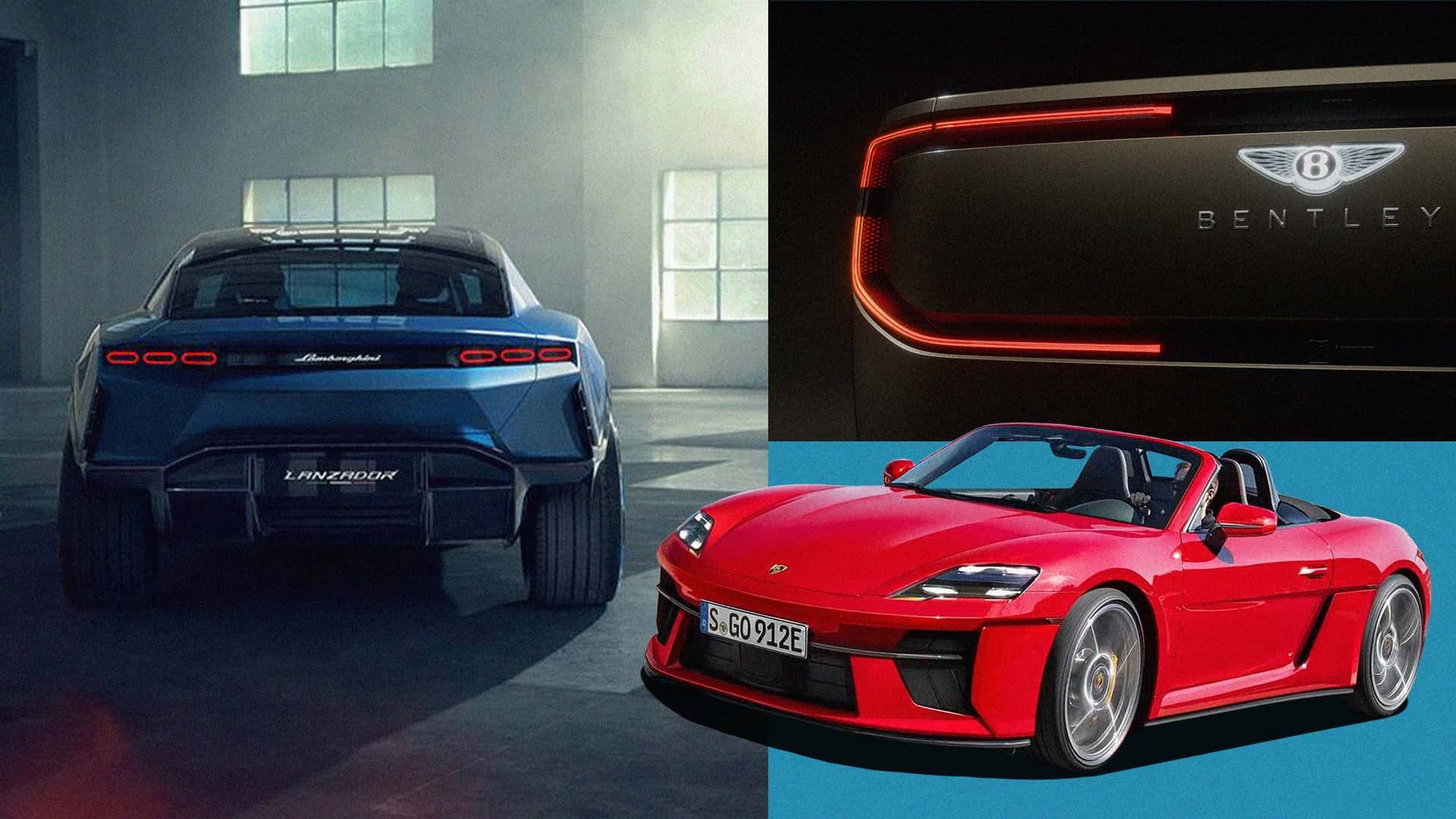
The Electric Vehicle U-Turn: Why Luxury Car Brands Are Re-Embracing Combustion Engines
For a brief period, it seemed the automotive world was hurtling towards an all-electric future. Manufacturers, including those specializing in ultra-luxury and high-performance vehicles, unveiled ambitious electrification plans. However, a significant shift is underway, with brands like Lamborghini, Ferrari, Koenigsegg, Rimac, and Bentley scaling back their EV ambitions and reinvesting in traditional gasoline-powered engines. This change of heart stems from a critical realization: the demand for battery-powered supercars simply isn't there.
The Luxury Market's Hesitation
Several premium brands have experienced a slowdown in EV adoption. Porsche, initially aiming for 80% electric vehicle sales by the end of the decade, is now adopting a more balanced approach, favoring hybrid technology while still offering battery-electric vehicles (BEVs) where appropriate. Mercedes-Benz has also slowed its EV rollout. The EQ family of EVs struggled to gain traction, leading the company to pause order books on these models.
BMW has acknowledged that combustion engines will remain a part of its lineup indefinitely. The company has found previous electrification targets difficult to meet, especially with anticipated decreases in demand due to changes in U.S. federal EV tax credits. While the tax credit issue has less impact on the ultra-luxury segment, these brands are still seeing lukewarm interest in EVs.
Bentley, which previously planned to phase out gasoline engines by 2035, is now extending the lifespan of internal combustion engines as part of a shared investment strategy with other Volkswagen Group brands. CEO Frank-Steffen Walliser stated that customer demand isn't strong enough to support an all-electric strategy at this time. He noted that the luxury market has changed significantly since the initial "Beyond100" electrification plan was announced. Even brands like Aston Martin and Lotus are backing away from exclusively EV-heavy fleets, signaling a broader trend within the luxury sector.
Hypercar Manufacturers Hear the Customer
The shift away from EVs is particularly pronounced in the supercar and hypercar segments. Mate Rimac, head of both Bugatti and Rimac, has stated unequivocally that buyers of these ultra-high-performance vehicles do not want fully electric models. Christian von Koenigsegg echoed this sentiment, noting extremely low market appetite for all-electric cars in this category.
Lamborghini has also been hesitant about electric vehicles, a stance that CEO Stephan Winkelmann believes has ultimately benefited the brand. He emphasized that fulfilling customer desires is paramount and that, currently, customers want internal combustion engines. This perspective led Lamborghini to embrace hybrid technology as an interim solution while delaying the launch of its first all-electric vehicle, the Lanzador EV, until at least 2029, and even considering making it a plug-in hybrid.
Ferrari, while publicly enthusiastic about bringing an electric supercar to market, reportedly has internal concerns about demand. Sources within the company have indicated that there is "zero" demand for high-performance EVs among their core customer base.
The Emotional Connection
The lukewarm reception to EVs in the ultra-luxury market suggests that these buyers are driven by factors beyond mere performance metrics. Electric vehicles offer instant torque and rapid acceleration, but they lack the sensory experience associated with traditional supercars, such as the rumble of an exhaust or the sound of a high-revving engine.
Supercar purchases are often emotionally driven. These vehicles represent dream cars that buyers have aspired to own for years. They are buying brands they know and love, equipped with the powertrains that made them famous. For these buyers, the auditory and tactile experience of a combustion engine is an integral part of the appeal.
Another factor may be that the economic incentives that drive the mass market to EVs are less relevant for the ultra-wealthy. For typical car buyers, EVs offer an escape from fluctuating fuel prices and high maintenance costs. However, those who can afford ultra-luxury vehicles are less concerned about these expenses, diminishing the appeal of EVs as a cost-saving measure.
The Future of Electrification in the Luxury Sector
While the current trend points towards a continued role for combustion engines, the future of electrification in the luxury sector is not entirely bleak. As electric vehicle technology advances and becomes more ingrained in popular culture, future generations of supercar enthusiasts may develop a greater appreciation for electric powertrains.
For now, ultra-luxury brands are adopting a more measured approach to electrification, focusing on hybrid technology and carefully considering customer preferences. Electric supercars will likely emerge eventually, but their development will be driven by genuine demand rather than a rush to be first to market. The initial enthusiasm for a fully electric future may have waned, but the commitment to electrification remains, albeit with a more deliberate and customer-centric focus.


No comments:
Post a Comment